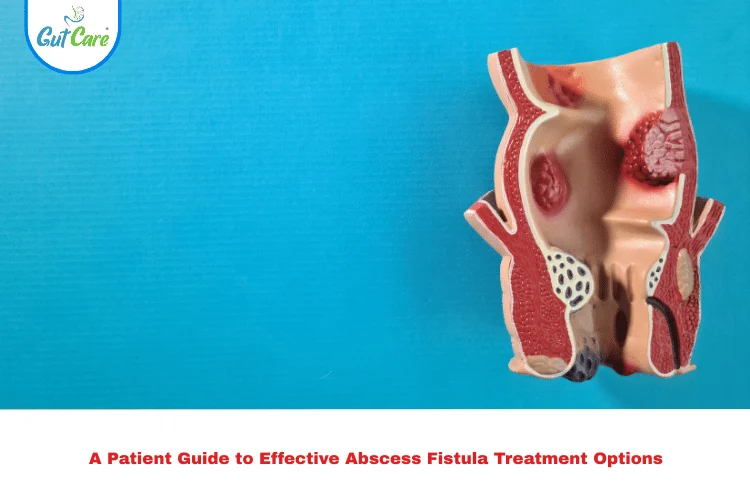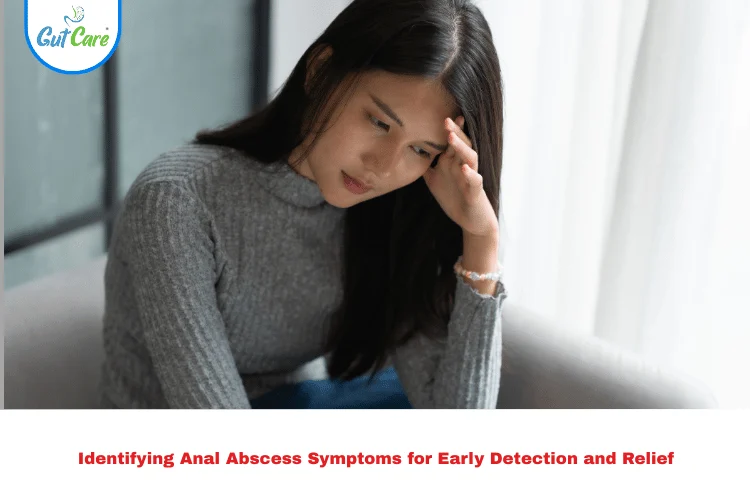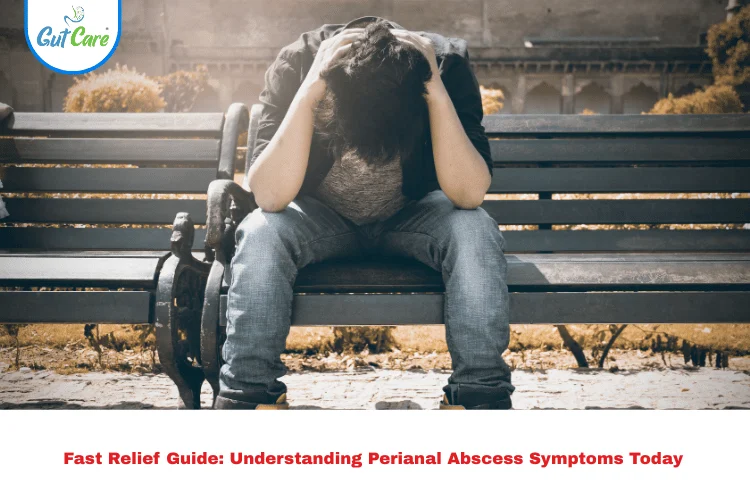Is it possible to treat an anal fistula at home?
If you have an anal fistula, you’ve probably been wondering whether there’s an anal fistula home remedy that can help without surgery. Let’s face it – the internet is full of promises of natural cures, quick solutions, and no-surgery methods. But do these anal fistula home remedies really work? Or are they myths that set you back from getting proper treatment?
An anal fistula is a painful and embarrassing condition that necessitates attention with care. As much as certain remedies may have the potential to relieve symptoms momentarily, no home remedy is equal to a professional treatment in getting rid of a fistula once and for all. In this blog, we will take a look at some of the best-selling home remedies for anal fistulas, divide fact from fantasy, and enlighten you better on the appropriate steps you need to follow when dealing with the condition.
What Is an Anal Fistula?
It’s critical to comprehend what an anal fistula is before beginning any treatment. A tiny tunnel that develops between the skin close to the anus and the anal canal is called an anal fistula. An abscess usually results from an infected anal gland. Although a fistula might seem like a small annoyance at first, if treatment is not received, it can result in excruciating pain, discomfort, and recurring infections.
Anal fistulas, in contrast to simple hemorrhoids or minor problems, rarely go away on their own and need to be treated, frequently with medication or surgery.
Popular Home Remedies for Anal Fistula: Fact vs. Fiction
1. Warm Sitz Baths: Soothing Yet Limited
Fact
One of the few treatments that work to control symptoms is sitting in a warm sitz bath. By soaking the affected area in warm water, you can:
- Alleviate pain and inflammation
- Facilitate drainage through the fistula
- Relax the anal sphincters, alleviating discomfort
Though a sitz bath is not a anal fistula treatment, it can definitely help in providing temporary relief from the pain of an anal fistula. It’s an effective and safe method, and that’s why it’s one of the best fistula treatments you can try at home. You can repeat this 2–3 times a day, particularly after bowel movements.
2. Turmeric Milk: Boosting Immunity, Not Healing
Half Fact
Because of its well-known anti-inflammatory qualities, taking turmeric in warm milk may strengthen your immune system. It won’t directly heal an anal fistula, but it might even help lower some inflammation in the body. Neither the fistula tract nor any resulting infections can be closed by turmeric.
Turmeric is good for your general health, but it is not a practical way to anal fistula treatment at home. Instead of being the main anal fistula treatment, it ought to be viewed as an adjunctive measure.
3. Castor Oil: Ineffective for Fistula Healing
Fiction
Castor oil is often claimed as a natural cure for many health ailments, including fistulas of the anus. Nevertheless, there is no scientific basis for its use to cure fistulas. While externally applied, castor oil can bring relief for superficial irritation but it will not cure the fistula or stop infection.
The use of castor oil might cause irritation or make the condition worse, particularly if the skin becomes inflamed because of the infection. It is better not to use this home remedy and seek a healthcare provider instead.
4. High-Fiber Diet: A Smart Approach to Symptom Relief
Fact
An important part of treating the symptoms of an anal fistula is eating a diet high in fiber. Fiber eases the strain of bowel movements by softening stool. This can lessen constipation, a common problem for people with anal fistulas, and stop additional irritation or damage to the fistula.
Incorporating more fiber-rich foods into your diet, such as:
- Whole grains
- Leafy vegetables
- Fruits like apples and berries
…can help maintain healthy digestion and reduce the likelihood of painful bowel movements that might aggravate the fistula.
5. Aloe Vera and Herbal Creams: Temporary Relief Only
Fiction
Although some herbal creams and aloe vera may feel cooling and soothing to the skin, they don’t deal with the underlying problem. Anal fistulas cannot be healed by these natural remedies, but they can offer momentary relief from discomfort or itching.
They can reduce mild irritation, but they shouldn’t be used in place of appropriate medical care. Using herbal creams exclusively without consulting a doctor can cause problems and postpone appropriate healing.
The Dangers of Relying on Home Remedies Alone
Many people ask, “Can I heal a fistula without surgery?” While home remedies may help with symptom management, they cannot cure the fistula. Delaying proper medical care can result in the fistula becoming more complicated or chronic, leading to severe discomfort and infections.
Here’s why relying on home remedies alone is risky:
- Risk of infection: Failure to drain or clean the affected area can result in an abscess formation and subsequent health issues.
- Chronic pain: Long-term use of home remedies may not be sufficient to ease the discomfort and pain of a fistula.
- Need for surgery: Surgery is usually required for complete healing of an anal fistula. Non-surgical treatments such as laser therapy are on the rise.
The Best Anal Fistula Treatment : Medical Intervention
When it comes to the best anal fistula treatment, professional attention is your best bet. Alternatives such as laser treatment for anal fistula provide non-surgical alternatives that are effective and least invasive. They can seal the fistula tract, minimize infection risk, and facilitate quicker healing with less recovery time.
For optimal outcomes, seek consultation from a colorectal specialist who can evaluate your condition and suggest the best anal fistula treatment plan.
When to Seek Professional Help
If you’re experiencing the following symptoms, it’s crucial to seek medical help:
- Persistent pain around the anus that doesn’t subside
- Fever or worsening swelling around the anus
- Recurring abscesses or pus near the fistula opening
- Difficulty sitting or moving due to discomfort
Ignoring these symptoms or trying to treat them with unproven home remedies could lead to serious complications, which is why it’s essential to seek professional anal fistula treatment at the earliest.
Final Thoughts: Choose Relief Over Rumors
When it comes to anal fistula treatment at home, though some treatments will ease pain, they don’t provide a solution. For permanent relief, professional treatment is needed. Putting off medical attention in exchange for home remedies might complicate your condition.
Whether you’re exploring options like laser treatment for anal fistula or looking for more traditional surgical methods, remember that the right approach will vary depending on your specific situation.
GutCare Clinics in Bangalore specializes in the latest, most effective anal fistula treatment options that prioritize your health and comfort. Don’t delay—seek professional advice and take the first step toward a pain-free life.
FAQs:
1. Can anal fistula be treated without surgery?
Yes, some home remedies and non-invasive anal fistula treatments may help manage the symptoms of an anal fistula, but surgery is often recommended for complete healing. It’s best to consult a doctor for proper evaluation.
2. What are the best home remedies for treating an anal fistula?
While home remedies like warm baths, turmeric, and aloe vera may offer temporary relief, they are not a substitute for medical treatment. Always consult a healthcare provider before trying any home treatments.
3. How long does it take for an anal fistula to heal?
Healing time varies depending on the severity of the fistula and the treatment method used. Non-surgical treatments may take longer, while surgical options can offer faster healing.
4. Are there any risks in using home remedies for anal fistula?
Home remedies can sometimes provide relief, but relying on them without proper medical care could worsen the condition. Always ensure you have a healthcare provider’s approval before trying home remedies.
5. When should I see a doctor for my anal fistula?
If your symptoms worsen, if there’s persistent pain, swelling, or discharge, or if the fistula doesn’t improve with home treatment, it’s time to consult a doctor for further diagnosis and anal fistula treatment options.




